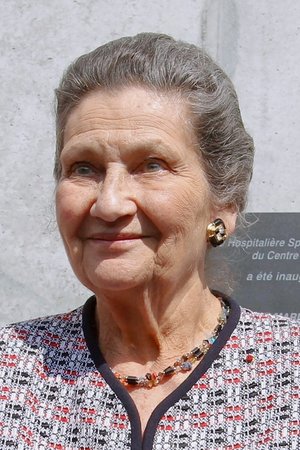Simone Veil (1927-2017)
Alias:
Simone Jacob
Birthplace:
Nice, Alpes-Maritimes, France
Born:
July 13, 1927
Died:
June 30, 2017
Simone Veil Grand-croix DBE (née Jacob; 13 July 1927 – 30 June 2017) was a French magistrate and politician who served as Health Minister in several governments and was President of the European Parliament from 1979 to 1982, the first woman to hold that office. As health minister, she is best remembered for advancing women's rights in France, in particular for the 1975 law that legalized abortion, today known as Veil Act (French: Loi Veil). From 1998 to 2007, she was a member of the Constitutional Council, France’s highest legal authority. A Holocaust survivor, of both Auschwitz-Birkenau and Bergen-Belsen, she was a firm believer in the European integration as a way of guaranteeing peace. She served as president of the Fondation pour la Mémoire de la Shoah, from 2000 to 2007, then subsequently as honorary president. Among many honours, she was made an honorary dame in 1998, was elected to the Académie Française in 2008, and in 2012 received the grand cross of the Légion d’honneur, the highest class of the highest French order of merit. One of France’s most revered figures, Simone Veil and her husband were buried at the Panthéon on 1 July 2018. Her eulogy was given by President Emmanuel Macron. Simone Jacob was born in Nice in south-east France on 13 July 1927, in an atheist Jewish family. Her father André Jacob was an architect who graduated from the Beaux-Arts de Paris and went on to win the Prix de Rome for Architecture. In 1922 he married Yvonne Steinmetz, who had just passed her Baccalaureate and was about to start studying chemistry. André Jacob insisted that she abandon her studies upon marriage. The family moved from Paris to Nice in 1924, hoping to benefit from construction projects on the Côte d’Azur. Simone was the youngest of four siblings, Madeleine (nicknamed Milou) was born in 1923; Denise in 1924 and Jean in 1925. On her father’s side, the family had come from Lorraine, on her mother’s from the Rhineland region and from Belgium. When Germany invaded France and the Vichy regime came to power in June 1940, the family managed to avoid being deported, as Nice had been included in the Italian occupation zone. Asked not to come to school by its superintendent, Simone Jacob had to study at home. As the round-up of Jews intensified, the whole family split up and lived with different friends under false identities. Denise left for Lyon to join the resistance, while 16-year-old Simone kept studying and passed her baccalaureate exam under her real name in March 1944. The next day, as she was on her way out to meet friends and celebrate the end of her secondary education, she was arrested by the Gestapo. On the same day, the rest of the family was also rounded up. On 7 April 1944, Simone, her mother, and her sisters were sent to the transit camp of Drancy, then on 13 April were deported to Auschwitz in Convoy 71. Simone’s brother and father were deported to the Baltic states in Convoy 73, never to be seen again, and thus were assumed to have been murdered. Her sister Denise was deported to Ravensbrück concentration camp, which she survived, and after the end of World War II in Europe was reunited with Simone. ... Source: Article "Simone Veil" from Wikipedia in English, licensed under CC-BY-SA 3.0.
